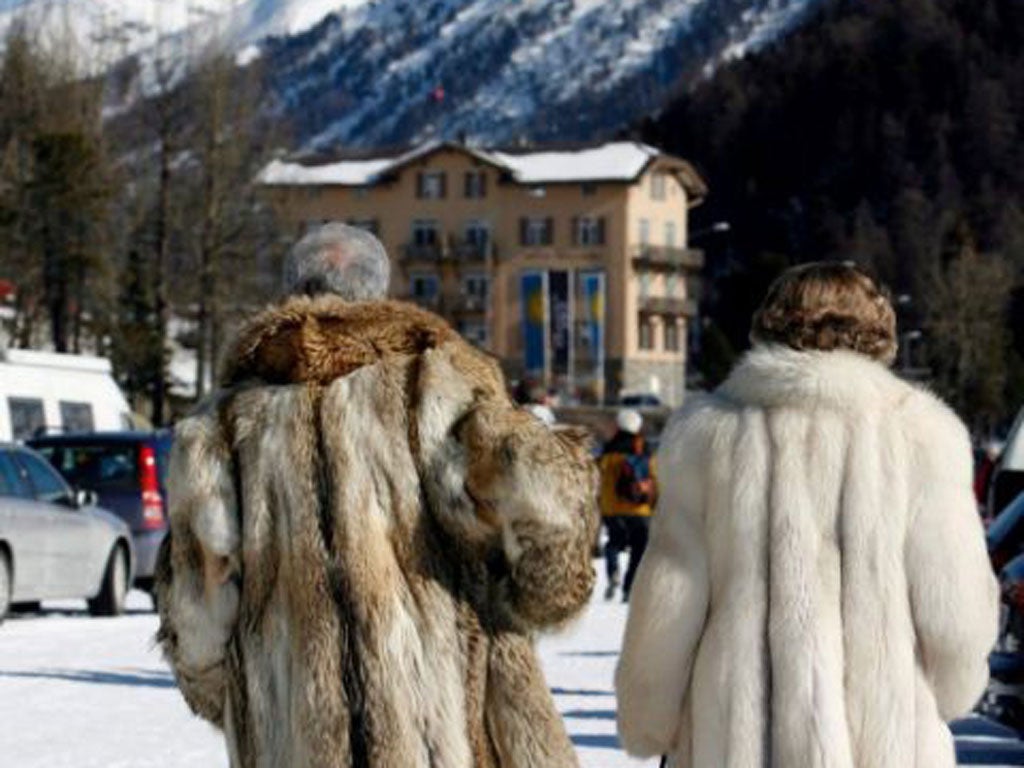Switzerland fears euro fallout – because its currency is too strong
Influx of investors seeking safe haven may send franc to record high and hit nation's high rollers

The promenades of Geneva and Zurich may seem a world away from the protests and turmoil plaguing the streets of Athens. But, with the European sovereign-debt crisis going rapidly from bad to worse, concerns are growing about the economic impact on Switzerland if the Greeks ditch the euro.
The biggest fear is over the ever- reliable Swiss franc. Last year, the mayhem in the 17-member euro area drove up the value of the Swiss currency, threatening the country's economy. Increasing pressure on the franc adversely affected Swiss exports and led to a marked decline in tourism.
Central bankers in Berne were eventually forced to step in and the currency rise was halted only after the Swiss National Bank intervened to peg its value against the euro at a floor of 1.20 per franc.
But there are concerns that Switzerland will be struck by another wave of foreign currency if Greece decides to leave the eurozone after its forthcoming general election. This could drive up the franc yet again – presenting a fresh headache for Swiss politicians and businessmen alike. Already, fears about the situation in Greece and the possibility of widespread eurozone instability have caused the value of the franc to rise again against the euro. In recent weeks it has been trading within a fraction of the floor set last year.
Attention is turning to capital controls on foreign deposits, a weapon that Berne's policymakers haven't used since the 1970s, when Switzerland attempted to temper the influx of oil money from the newly rich Middle East.
Back then, the government banned foreign investments in Swiss securities and property, and introduced negative interest rates on foreign deposits. But the curbs failed to halt the rise of the franc. The currency was brought under control only after it was pegged to the then German currency, the Deutschmark. Moreover, regulating foreign deposits, rather than merely pegging the exchange rate, would require intervention by the Swiss government, as well as the banks.
In a sign that policymakers were preparing for such a move, the head of the Swiss National Bank, Thomas Jordan, raised the prospect of capital controls this week. His words count: this year, Berne set up a task force, led by Mr Jordan and finance minister Eveline Widmer-Schlumpf, to work out contingency plans in the event of a eurozone collapse.
The challenge facing the Swiss was underlined yesterday, with minimal market reaction to the possibility of far-reaching capital controls. The franc retained its value despite Mr Jordan's warning, indicating that traders were inclined to continue holding the currency despite the regulatory threat.
The crux of the issue, currency experts said, was whether the Swiss National Bank was prepared to risk "massive intervention" to defend the exchange rate. Much like the possibility of a Greek exit from the euro, only time will tell.
Join our commenting forum
Join thought-provoking conversations, follow other Independent readers and see their replies
Comments